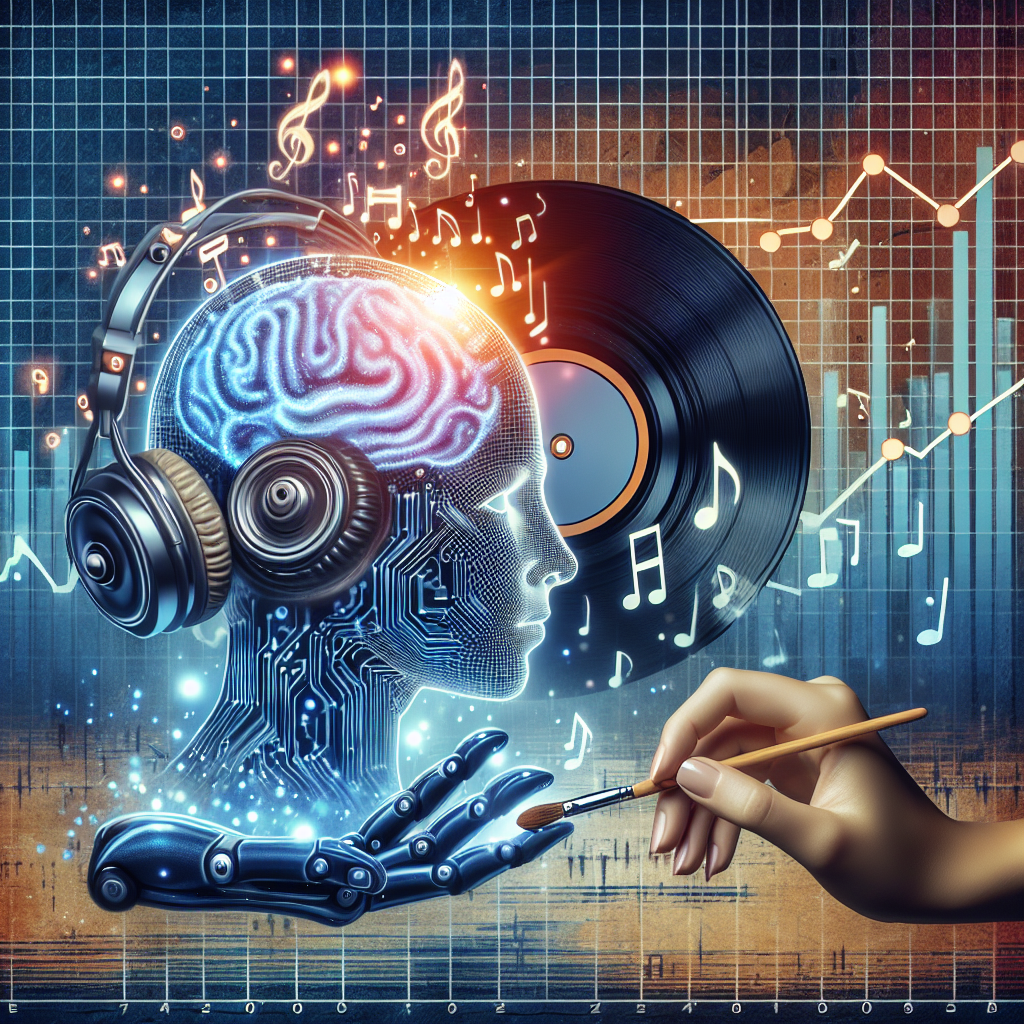The Impact of AI on Music Consumption Habits
Artificial Intelligence (AI) has revolutionized many aspects of our lives, including how we consume music. From personalized recommendations to automated music creation, AI is changing the way we interact with music. In this article, we will explore the impact of AI on music consumption habits and how it is shaping the future of the music industry.
Personalized Recommendations
One of the most noticeable impacts of AI on music consumption habits is the rise of personalized recommendations. Streaming services like Spotify and Apple Music use AI algorithms to analyze users’ listening habits and preferences to create personalized playlists and recommendations. This has made it easier for users to discover new music that aligns with their tastes, leading to increased engagement and longer listening sessions.
AI-powered recommendation systems are able to analyze vast amounts of data, such as listening history, genre preferences, and user behavior, to deliver accurate and relevant recommendations. This has helped users discover new artists, genres, and songs that they may not have otherwise come across, leading to a more diverse and enriched music listening experience.
Automated Music Creation
AI has also made waves in the music industry by enabling automated music creation. AI algorithms are now able to compose music, generate lyrics, and even produce entire songs without human intervention. This has led to the rise of AI-generated music, which has been met with both excitement and skepticism from musicians and music fans alike.
While AI-generated music may lack the emotional depth and creativity of human-created music, it has the potential to revolutionize the music production process by offering new tools and possibilities for artists. AI can help musicians streamline the songwriting process, generate new ideas, and experiment with different sounds and styles. This has the potential to democratize music creation and make it more accessible to a wider audience.
Enhanced Music Discovery
AI-powered music recommendation systems have also enhanced music discovery by providing users with a more personalized and tailored experience. By analyzing users’ listening habits and preferences, AI algorithms can create customized playlists, suggest new artists and genres, and curate content based on individual tastes. This has helped users discover new music that they may not have otherwise come across, leading to a more diverse and enriched music listening experience.
In addition to personalized recommendations, AI has also made it easier for users to explore and discover music through features like voice search, image recognition, and mood-based playlists. These tools allow users to discover music based on their current mood, activity, or interest, making it easier to find the perfect soundtrack for any occasion.
AI-Powered Music Creation Tools
AI has also revolutionized the music production process by offering new tools and possibilities for artists. AI-powered music creation tools can help musicians streamline the songwriting process, generate new ideas, and experiment with different sounds and styles. These tools can analyze audio data, identify patterns, and suggest creative ideas for artists to explore.
AI-powered music creation tools can also help musicians collaborate with other artists, producers, and songwriters by providing a platform for remote collaboration and real-time feedback. This has the potential to break down barriers and connect artists from around the world, leading to new collaborations and creative partnerships.
Frequently Asked Questions
Q: Will AI replace human musicians?
A: While AI has the potential to revolutionize the music industry, it is unlikely to replace human musicians entirely. AI-generated music may lack the emotional depth and creativity of human-created music, but it can offer new tools and possibilities for artists to explore and experiment with. AI can help musicians streamline the songwriting process, generate new ideas, and collaborate with other artists, but human creativity and emotion will always play a vital role in music creation.
Q: How does AI-powered music recommendation work?
A: AI-powered music recommendation systems analyze users’ listening habits, preferences, and behavior to create personalized playlists and recommendations. These systems use algorithms to analyze vast amounts of data, such as listening history, genre preferences, and user interaction, to deliver accurate and relevant recommendations. By understanding users’ tastes and preferences, AI can create customized playlists, suggest new artists and genres, and curate content based on individual interests.
Q: Can AI help musicians discover new opportunities?
A: Yes, AI-powered music creation tools can help musicians discover new opportunities by providing new tools and possibilities for artists to explore and experiment with. AI tools can help musicians streamline the songwriting process, generate new ideas, and collaborate with other artists, producers, and songwriters. By offering new ways to create and share music, AI has the potential to connect artists from around the world, break down barriers, and foster new collaborations and creative partnerships.
In conclusion, AI is transforming the way we consume music by offering personalized recommendations, automated music creation, and enhanced music discovery. AI-powered recommendation systems have made it easier for users to discover new music that aligns with their tastes, leading to increased engagement and longer listening sessions. AI-powered music creation tools have also revolutionized the music production process by offering new tools and possibilities for artists to explore and experiment with. Overall, AI is shaping the future of the music industry by offering new opportunities for artists, connecting musicians from around the world, and providing users with a more personalized and enriched music listening experience.

